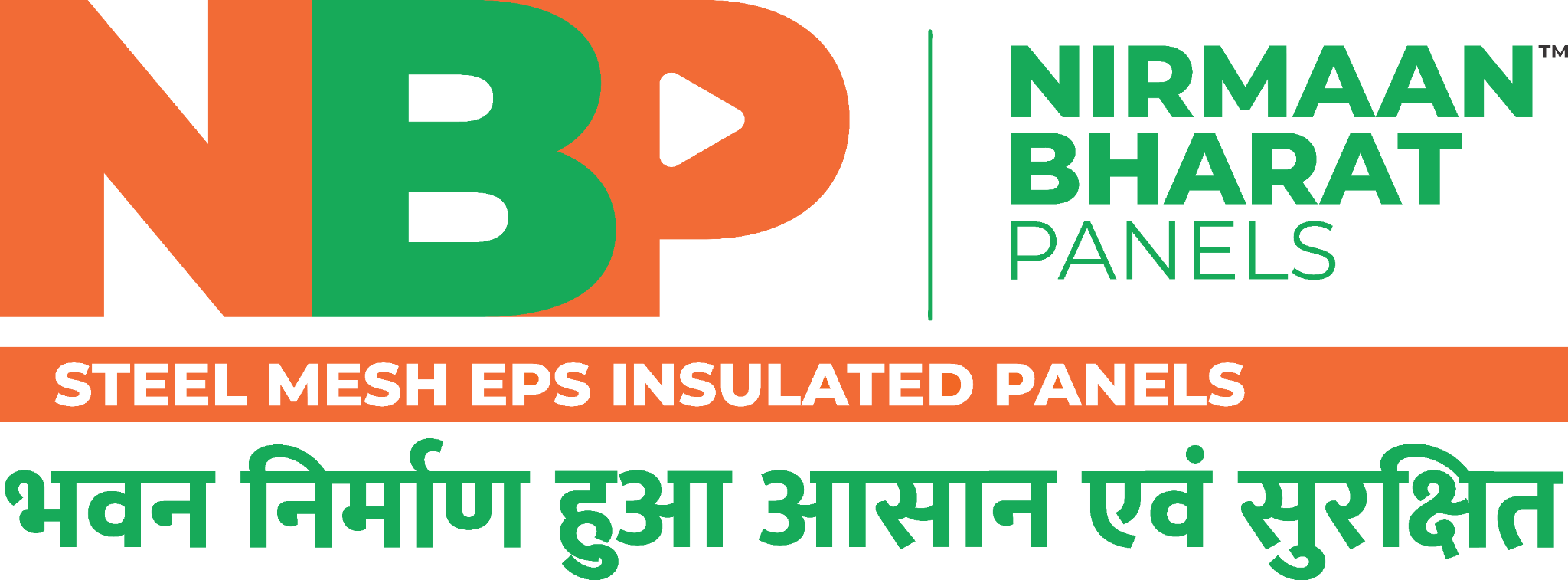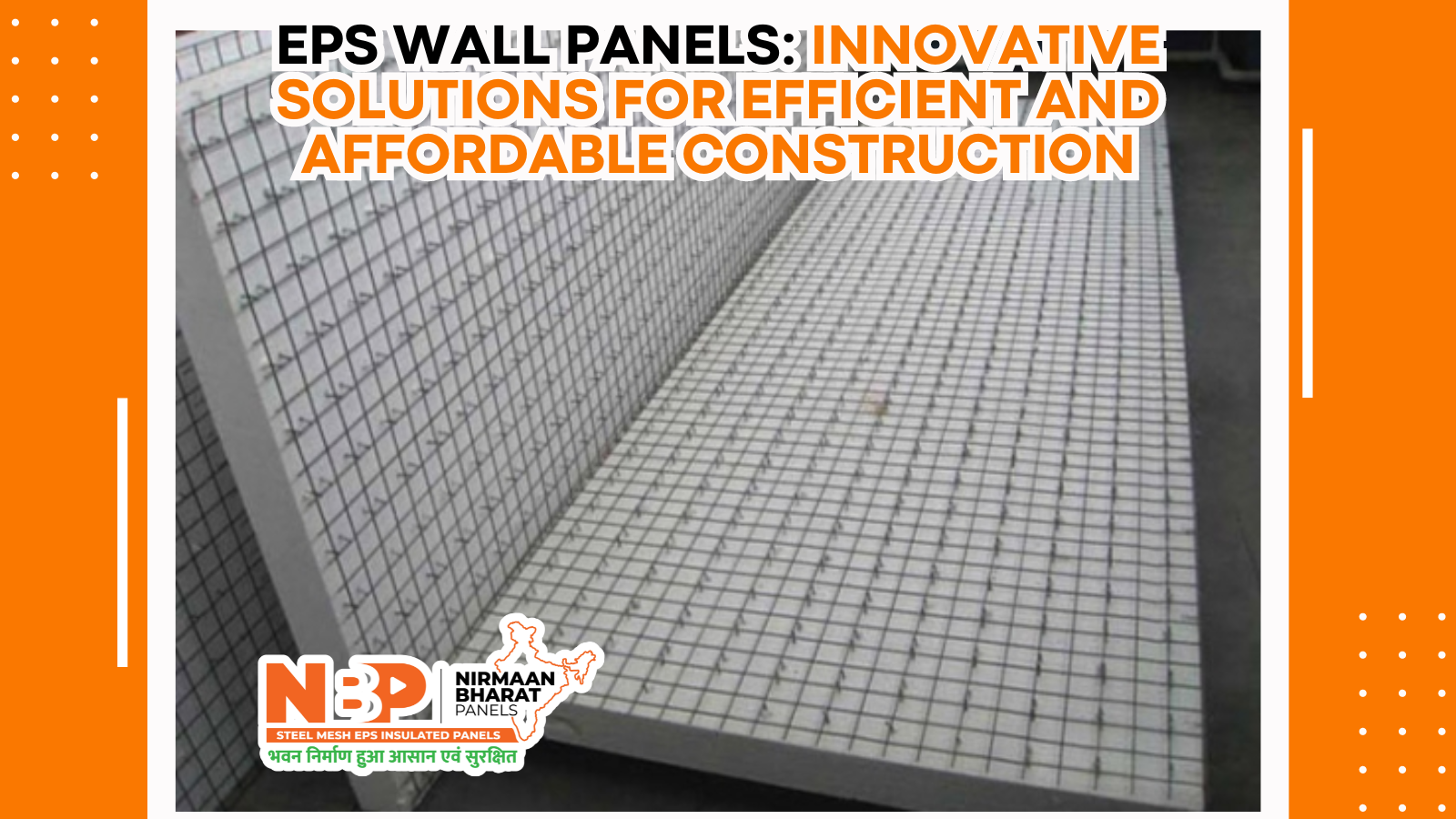Table of Contents
ToggleIntroduction
Expanded Polystyrene (EPS) wall panels are revolutionizing the construction industry with their combination of efficiency, affordability, and versatility. These panels are increasingly popular in various building applications due to their superior thermal insulation, ease of installation, and cost-effectiveness. This article explores the numerous benefits and features of EPS wall panels installation, highlighting their role in modern construction.
1. In-Depth Overview of EPS Wall Panels
- Defining EPS Wall Panels
- Material Composition Explained: EPS (Expanded Polystyrene) wall panels consist of a core of rigid foam insulation sandwiched between layers of protective materials like cement or plaster. This composition provides excellent thermal insulation while maintaining structural integrity.
- Manufacturing Process Insights: The production involves expanding polystyrene beads into foam, which is then shaped into panels. These panels are coated with protective layers to enhance durability and functionality.
- Different Types of EPS Panels
- Insulation-Focused Panels vs. Structural Panels: Insulation-focused EPS panels are primarily designed to offer superior thermal performance and are used in applications where insulation is the main concern. Structural panels, on the other hand, are reinforced to provide load-bearing capabilities, making them suitable for use in both insulation and structural roles.
2. Exceptional Thermal Insulation Performance
- Unmatched Insulation Efficiency
- Understanding Thermal Conductivity: EPS panels have a low thermal conductivity, which means they effectively resist the flow of heat. This property helps maintain a stable indoor temperature by minimizing heat transfer through walls and ceilings.
- Maintaining Optimal Indoor Temperatures: By creating a thermal barrier, EPS panels help keep indoor spaces warmer in winter and cooler in summer, leading to a more comfortable living environment.
- Economic Benefits of Energy Efficiency
- Reducing Heating and Cooling Costs: The high insulation value of EPS panels translates to reduced reliance on heating and cooling systems, leading to lower energy bills.
- Long-Term Cost Savings: Over time, the energy savings accrued from reduced heating and cooling requirements can offset the initial investment in EPS panels, providing significant financial benefits in the long run.
3. Cost-Effective Advantages of EPS Panels
- Initial Cost Benefits
- Affordable Pricing of EPS Materials: EPS panels are generally more cost-effective than traditional building materials like concrete or brick due to lower raw material and production costs.
- Savings on Transportation Costs: Their lightweight nature reduces transportation expenses, as fewer resources are needed to move the panels to the construction site.
- Economic Impact Over Time
- Energy Bill Reductions: With their superior insulation properties, EPS panels contribute to lower energy consumption for heating and cooling, directly reducing monthly utility expenses.
- Durability Reduces Maintenance Costs: EPS panels are designed to last and require minimal maintenance, translating to fewer repair or replacement costs over their lifespan.
4. Streamlined Installation Process
- Simplified Handling and Installation
- Advantages of Lightweight Panels: EPS panels are significantly lighter than traditional building materials, making them easier to handle and install. This characteristic reduces labor efforts and accelerates the construction process.
- Efficiency in Construction: The quick installation process facilitated by the lightweight and modular nature of EPS panels helps in completing projects faster, which can lead to lower overall construction costs.
- Minimal Equipment Needs
- Less Dependence on Heavy Machinery: Because EPS panels are easy to maneuver and fit together, there is less need for heavy lifting equipment and specialized machinery, which can reduce construction expenses.
- Reduced Labor Expenses: The simplified installation process translates to lower labor costs, as fewer workers are needed and the construction time is shortened.
5. Long-Term Durability and Maintenance Advantages
- Resilience to Environmental Conditions
- Weather-Resistant Properties: EPS panels are designed to resist adverse weather conditions, including moisture and UV exposure, which can otherwise degrade building materials over time.
- Physical Toughness: The panels are engineered to withstand impacts and general wear and tear, making them a durable choice for various construction applications.
- Low Maintenance Requirements
- Minimal Upkeep Needs: The durability of EPS panels means they require less frequent maintenance compared to traditional materials, which can be prone to issues like cracking or rotting.
- Ease of Repair: Minor damages to EPS panels can be repaired quickly and easily, ensuring that the panels remain in good condition throughout their service life.
6. Versatile Applications of EPS Panels
- Residential Applications
- Interior and Exterior Wall Uses: EPS panels are versatile enough to be used for both interior and exterior walls, providing excellent insulation and aesthetic flexibility for residential buildings.
- Partitioning and Space Management: They are effective for creating partitions within buildings, offering both functional and aesthetic benefits for space management.
- Commercial and Industrial Uses
- Office Building Applications: EPS panels can be used in office buildings to improve energy efficiency and provide a comfortable working environment through effective thermal insulation.
- Industrial Settings: In industrial facilities, EPS panels serve as both insulation and structural support, helping to maintain temperature control and support various operational needs.
7. Enhanced Acoustic Performance
- Effective Sound Insulation Capabilities
- Noise Reduction Features: EPS panels offer significant soundproofing benefits, reducing noise transmission between rooms and from external sources, creating quieter indoor environments.
- Improved Acoustic Comfort: By minimizing noise disturbances, EPS panels contribute to a more pleasant and productive environment in both residential and commercial settings.
- Applications in Noise-Sensitive Areas
- Urban Noise Management: In densely populated urban areas, EPS panels help mitigate the impact of external noise, improving the quality of life for residents.
- Educational and Healthcare Environments: The acoustic benefits of EPS panels are particularly valuable in schools and healthcare facilities, where noise control is crucial for effective learning and patient care.
8. Eco-Friendly Characteristics of EPS Panels
- Sustainability and Recyclability
- Recycling Options: EPS panels can be recycled at the end of their life cycle, contributing to waste reduction and environmental sustainability.
- Use of Recycled Materials: Many EPS panels incorporate recycled EPS content, reducing the environmental impact associated with raw material extraction.
- Environmental Benefits
- Contribution to Lower Carbon Footprint: By improving energy efficiency in buildings, EPS panels help reduce greenhouse gas emissions associated with heating and cooling.
- Alignment with Green Building Standards: EPS panels can contribute to achieving green building certifications and standards, supporting sustainable construction practices.
9. Design Flexibility and Aesthetic Potential
- Variety of Finishing Options
- Customizable Surface Finishes: EPS panels can be finished with a variety of materials such as plaster, stucco, or decorative coatings, allowing for diverse architectural styles and preferences.
- Adaptable Design Features: The panels can be customized to fit different textures, colors, and patterns, enhancing the visual appeal of any building.
- Architectural Integration Capabilities
- Seamless Design Integration: EPS panels can be integrated seamlessly into various building designs, complementing existing architectural elements and enhancing overall aesthetics.
- Tailored Solutions for Unique Projects: Custom design options enable the adaptation of EPS panels to meet specific project requirements and creative visions.
10. Structural Strength and Support Capabilities
- Load-Bearing and Structural Applications
- Strength and Durability: EPS panels can be reinforced to handle load-bearing applications, providing structural support in addition to insulation.
- Composite Building Solutions: When combined with other materials like concrete or steel, EPS panels contribute to the overall strength and stability of building systems.
- Performance in Diverse Building Types
- Versatile Structural Support: EPS panels are suitable for a range of construction types, from residential homes to commercial buildings, offering both insulation and structural benefits.
- Enhanced Building Integrity: The use of EPS panels in conjunction with other building materials enhances the overall performance and durability of the structure.
11. Maintenance and Upkeep Simplified
- Low Maintenance Advantages
- Durable Materials: The robust nature of EPS panels reduces the frequency of maintenance required, saving time and effort in upkeep.
- Easy Cleaning Procedures: The smooth surfaces of EPS panels are easy to clean and maintain, contributing to the overall cleanliness and appearance of the building.
- Inspection and Repair Ease
- Routine Maintenance Checks: Regular inspections help ensure that EPS panels continue to perform effectively and address any issues promptly.
- Efficient Repair Methods: The process for repairing minor damages is straightforward and quick, allowing for minimal disruption and maintenance costs.
12. Innovative Trends and Future Prospects
- Advancements in EPS Technology
- Improvements in Insulation Materials: Ongoing research is focused on enhancing the performance of EPS panels, including better insulation properties and durability.
- Integration with Smart Building Systems: Emerging technologies may incorporate EPS panels into smart building solutions, optimizing energy use and building management.
- Emerging Construction Applications
- Sustainable Building Trends: EPS panels are increasingly used in green building projects, supporting eco-friendly construction practices and sustainability goals.
- Adaptability for New Construction Types: The versatility of EPS panels allows for their application in new and innovative building designs, expanding their use across different sectors.
Conclusion
EPS wall panels offer an innovative, efficient, and affordable solution for modern construction needs. Their exceptional thermal insulation, ease of installation, and cost-effectiveness make them a preferred choice for a wide range of applications. With their durability, versatility, and eco-friendly characteristics, EPS panels are well-positioned to meet the demands of contemporary building projects and contribute to sustainable construction practices.



